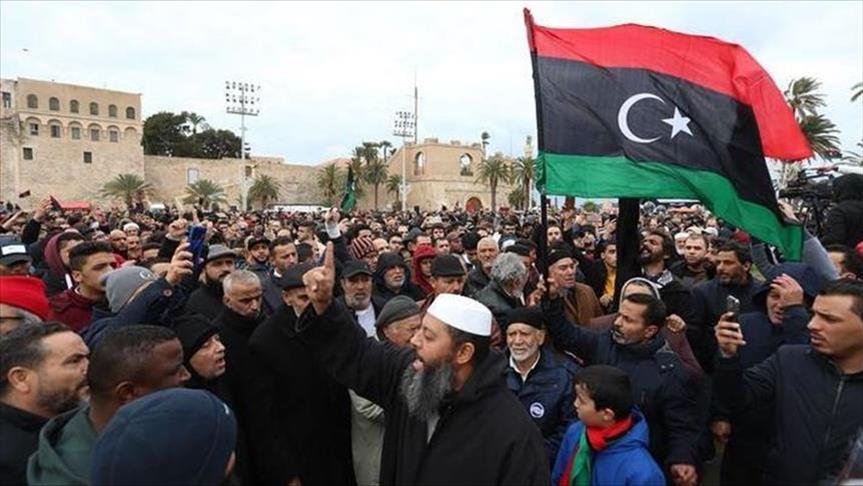Oil revenues to pay for 1.3 million people employed in Libya’s public sector are under threat due to the civil strife in the county, National Oil Corporation (NOC) Chairman Mustafa Sanalla said on Monday.
After the El Sharara oil terminal in Libya was seized by groups loyal to Libyan warlord Khalifa Haftar in early January, the NOC declared a force majeure on Jan. 18 and said halting oil exports would cause oil production loss of 800,000 barrels per day (bpd) and financial losses of approximately $55 million a day in the country with a population of 6.8 million.
Sanalla said Libya's oil production could soon decline to 70,000 bpd, and this would have an economic impact of losing a total of $440 million.
'Acting illegally by blocking Libyan oil production will just lead to the further impoverishment of the Libyan state and erosion of the rule of law,' Sanalla said during his speech at Chatham House in London, according to a NOC statement.
'We were told the NOC will not receive the requested budget it needs for its ambitious program to expand oil production -- that means billions less for the Libyan people in future years,' he added.
In addition to output and financial losses, Sanalla cautioned that sudden oil production stoppages would also prove disastrous for the oil sector’s infrastructure since crude oil left in pipelines would highly corrode the pipes’ surface equipment causing lasting damage.
The NOC head also called for the international community, and especially the major powers, to find a solution in Libya.
'The international community has to understand that if it rewards, or even tolerates, those who break the law in Libya, then it will be complicit in the end of the rule of law in our country. And that means more corruption, more crime, more injustice and more poverty,” he stressed.
'There is a rule of law solution to problems in Libya. It is the only solution. But it seems the countries that have traditionally been the strongest backers of the rule of law need to find their voice and common purpose,' he said.
Libya holds Africa’s largest crude reserves, but nine years of conflict and violence in the country since the 2011 ouster of ruler Muammar Gaddafi have hurt production and exports.
The country produced 1.14 million bpd of crude oil in December 2019 based on secondary sources, according to OPEC's Monthly Oil Market Report for January; however, that recently fell to as low as 260,000 bpd.
By Ovunc Kutlu
Anadolu Agency
energy@aa.com.tr


